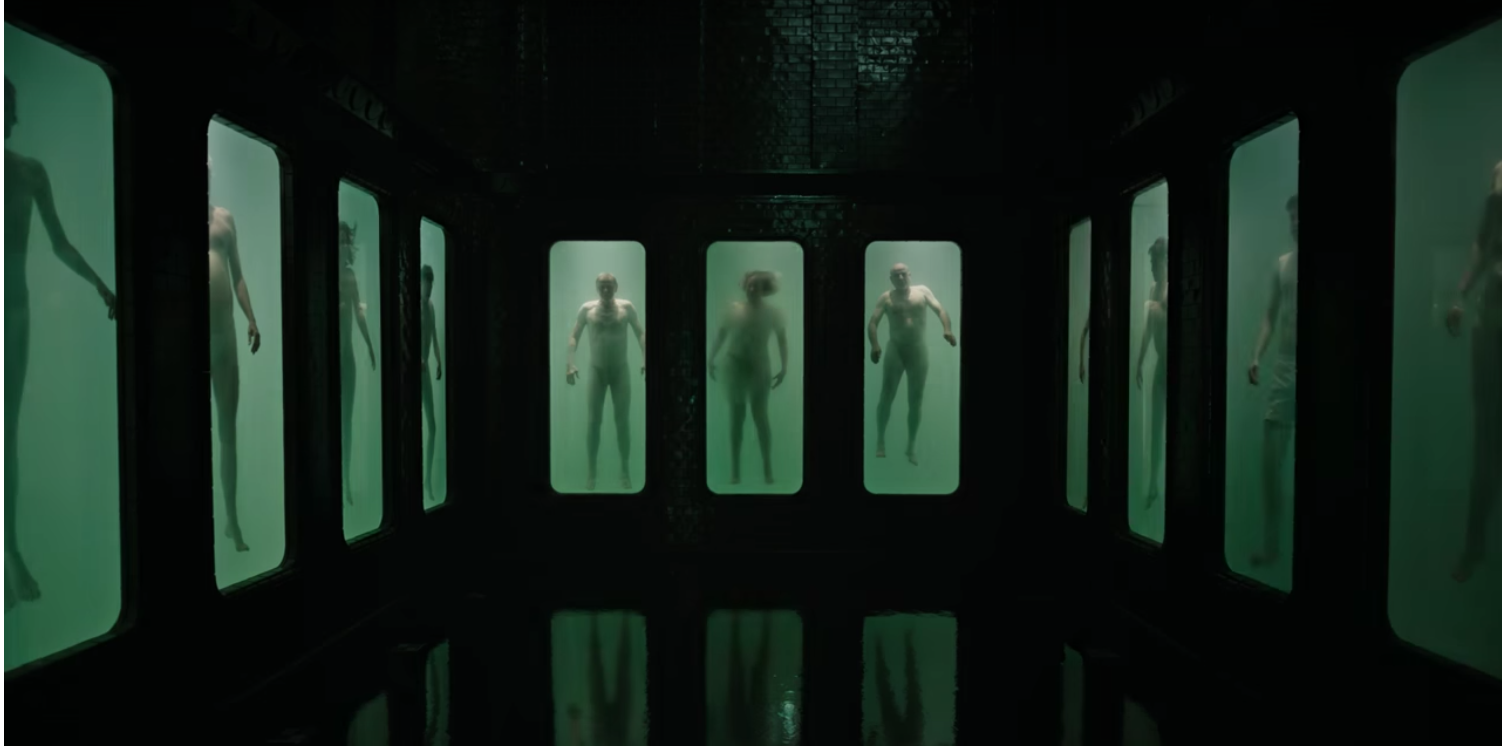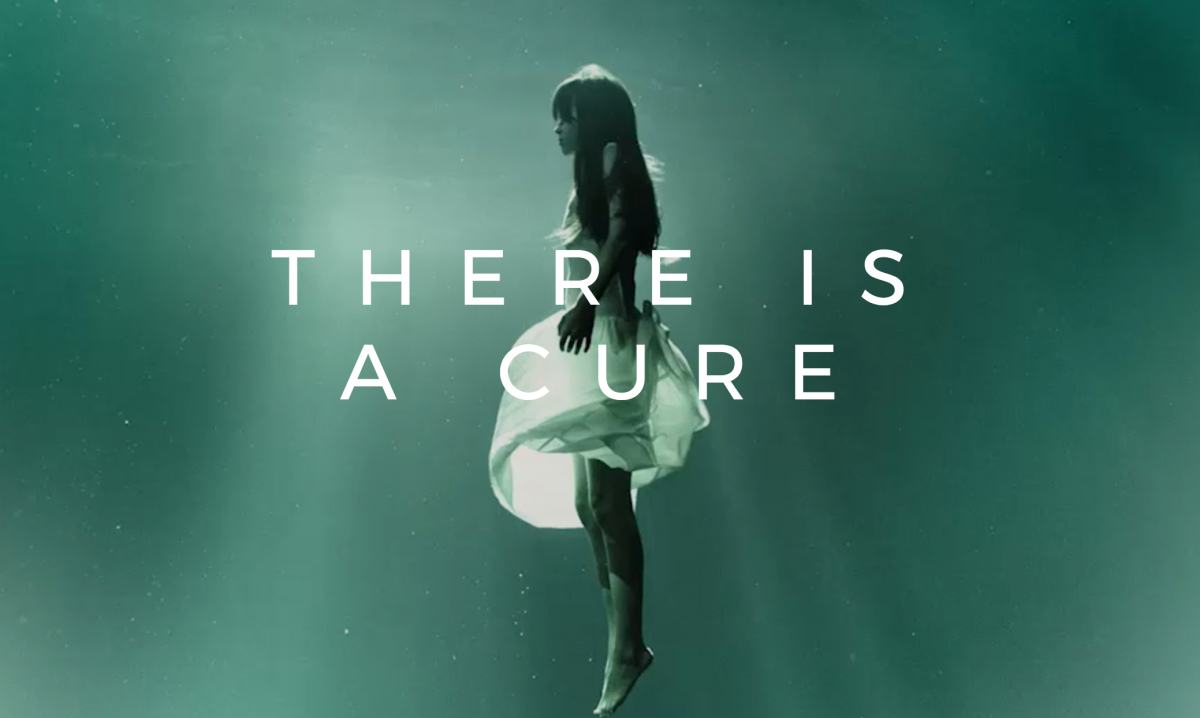
This article originally appeared on iDigitalTimes.
Director Gore Verbinski returns to horror with A Cure for Wellness, a gothic nightmare disguising a sharp critique of the monoculture that entraps us. We spoke with him about what pulses under his new movie's strange surface.
In contrast to his bombastic output — Mousehunt, The Ring, Rango, The Lone Ranger and three Pirates of the Caribbean movies — Verbinski is soft-spoken and analytical, describing the mechanics underlying a mood but without reductive loglines or simple themes. In response to a question about building A Cure for Wellness' gothic tone Verbinski launched into a fugue-like evocation of its plot, concocted with writer Justin Haythe, that was itself as dream-like in its architecture as the film he's describing:
"You're in New York and there's a wax seal on an envelope and there's a lullaby and it's like a perfume bottle has been opened somewhere in the Alps and has drifted across the Atlantic and it's that smoky hand wandering up that building and getting rid of Morris so new meat can come up to the corner office, with the dead fish and the heart attack, and they're sending the new lad to this place and as he winds up the road to this castle his phone stops working and his watch is going to stop."
In some ways his description of the movie's dreaminess is patter, evoking images from other interviews, but the effect is undeniable. Though we're so seldom able to articulate it, we've all had dreams like this, where a rational world fails to cohere, where ideas refuse to become discrete and packable, but leave an impression just the same. That's the world Lockhart (Dane DeHaan) enters when he's tasked with bringing back his company's CEO from a mysterious clinic in the Swiss Alps and winds up as an unwilling patient. "He's drifting into this allegory, this dream logic, to this place where the rules of the waking state don't apply," Verbinski says.
While achieving a dream-state is itself an accomplishment, Verbinski hopes A Cure for Wellness launches beyond, "piercing the membrane" that distances our consumption of pop culture from waking life:
"We're making a tale that's both contemporary and gothic and when curtain closes I don't want you to be able to say, 'oh that was something macabre' and disassociate from it. I want it to resonate with some contemporary fear. I think we are not well. And we're in some sort of sense of denial and we're in this increasingly irrational world."

In this formulation sickness, paranoia and disease itself is not the problem, but a symptom of dystopia, alienation and societal dysfunction. Though Verbinski's critique doesn't target politics specifically, his words resonate with radical cultural theorist Mark Fisher, who argues in Capitalist Realism: Is There No Alternative? that mental illness has been stripped of its social context so as to prevent critique of the capitalist culture from which it emerges, where humans are left in a state of endless precarity without the job or income security required to invest in stability. "It does not seem fanciful to see parallels between the rising incidence of mental distress and new patterns of assessing workers' performance," Fisher concludes.
For both Fisher and Verbinski, our society's relationship with illness empowers our consumerist impulses. "Why are we such easy prey for the pharmaceutical industry or the kale smoothie?" Verbinski asks, describing it as one aspect of a pernicious coping mechanism where our societal fixations simultaneously hurt us and find justification in self-diagnosis and medicalizing our woes. "If I asked you, 'when was the last time you slept well?' Or, 'do your feet hurt?' Or 'does your throat hurt?' At some point you're going to say 'yes I have that' and you're going to almost feel happy that it's been diagnosed. So what is underneath that? Is there some sense that we're starved for diagnosis?"
Verbinski doesn't pretend to have the answers. It's the realm of the horror movie to tear down the veil of civilization and expose the violence and irrationality underlying our "normal" world, a feature of the genre Verbinski embraces as a sort of Trojan call to complete social upheaval. "The youth today is sort of saying 'time out, I'm not going to just jump on the treadmill because the treadmill is what got us to where we are now.' Maybe there's a problem with the algorithm. Just to question that has value. Just to say 'maybe we're not well' has value," he said.
But if A Cure for Wellness' villain is any indication, there are many possible failure modes when extricating ourselves from this diseased world. "His assessment of modern man is correct," Verbinski says of Volmer (Jason Isaacs), the facility's director, whose dark plans consume the people he's treating. His clinic "is perched up there above the clouds and it's been watching the Industrial Revolution, the advent of personal computers and our obsession with our devices and it's offering a diagnosis." But like with so many of history's demagogues, ideologues, snake oil salesmen and charlatans, we often learn too late that the cure can be worse than the disease.
Uncommon Knowledge
Newsweek is committed to challenging conventional wisdom and finding connections in the search for common ground.
Newsweek is committed to challenging conventional wisdom and finding connections in the search for common ground.
About the writer
To read how Newsweek uses AI as a newsroom tool, Click here.








